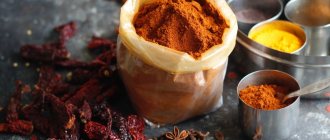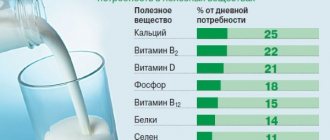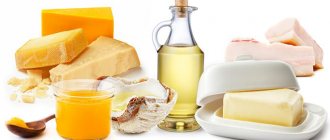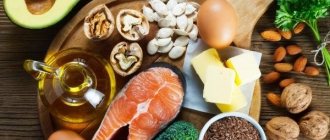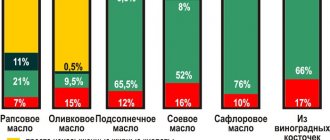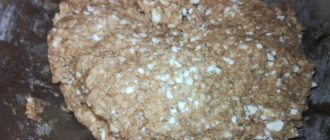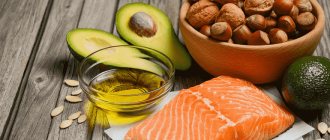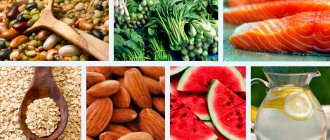Monounsaturated fats are “healthy fats” that can help you lose weight, lower cholesterol, reduce inflammation and prevent diabetes. Replacing saturated fat in your diet with monounsaturated fat can help improve your mood and protect against heart disease. This article lists even more health benefits of monounsaturated fats.
The article is based on the findings of 49 scientific studies
The article quotes authors such as:
- Military Hospital, Alexandroupolis, Greece
- Department of Food Analysis and Chemistry, Faculty of Technology, Tomas Bata University in Zlín, Czech Republic
- Institutd'Investigacions Biomèdiques August Pii Sunyer, Spain
- Department of Nutritional Sciences, Faculty of Life Sciences, University of Vienna, Austria
- Department of Biochemistry and Molecular Biology, Tongji Medical College, Huazhong University of Science and Technology, China
- Laboratory of Molecular Cellular Biomedicine, Faculty of Biology, Institut Universitari d'Investigacions en Ciències de la Salut, Spain
- and other authors.
Please note that the numbers in parentheses (1, 2, 3, etc.) are clickable links to peer-reviewed scientific studies. You can follow these links and read the original source of information for the article.
What are monounsaturated fats?
In biochemistry and nutrition, monounsaturated fatty acids
Abbreviated MUFAs or
monounsaturated fats,
are fatty acids that have one double bond in the fatty acid chain with all the remaining carbon atoms.
In contrast, polyunsaturated fatty acids (PUFAs) have more than one double bond.
Monounsaturated fats have two forms - cis and trans. In cis configurations, the hydrogen atoms are on one side of the double bond, and in trans configurations, they are on the opposite side. []
Trans-monounsaturated fatty acids are semi-solid fats produced by industrial processes that partially convert butter into saturated fats (partially hydrogenated fats) such as margarine. These are typically unhealthy monounsaturated fats , which are believed to cause inflammation, heart disease, and atherosclerosis. [The] exception is trans-palmitoleic acid, which is associated with lower levels of total cholesterol , triglycerides , and C-reactive protein .
The predominant natural form of monounsaturated fatty acids is the cis form.
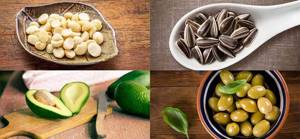
PLANT SOURCES OF MONOUNSATURATED FATS
Monounsaturated fats in foods:
- Nuts
- Avocado
- Olives
- Animal fats, including lard
Natural Sources of Monounsaturated Fats
Vegetable oils
Vegetable oils are a natural source of monounsaturated fats. [] Avocado, macadamia and olive oils contain predominantly monounsaturated fats, while canola, peanut, almond, sesame, sunflower and rice oils contain some monounsaturated acids, but mostly omega-6 fats.
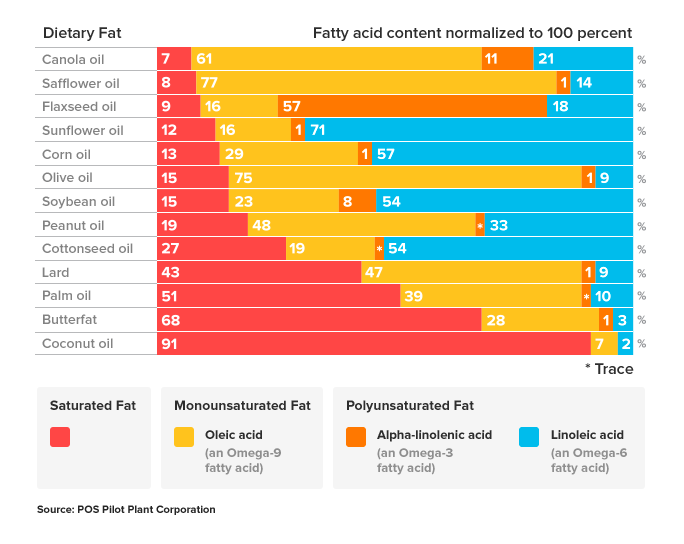
CONTENT OF MONOUNSATURATED FATS IN VARIOUS OILS
Nuts
Nuts are a good source of monounsaturated fats []:
- Macadamia (highest content)
- Hazelnut
- Pecan
- Almond
- Cashew
- Brazil nuts (dried)
- Pistachios
- Pine nuts (dried)
- Walnut
Other food
- Avocado []
- Olives []
- Red meat [, ]
- Mackerel []
- Farm fat dairy products (milk, cheese) [, ]
What products contain
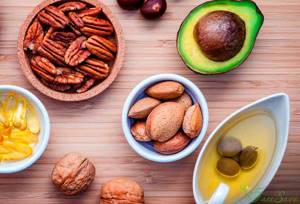
Most foods contain a combination of different fats. Monounsaturated fats, or Omega-9s, are oleic acid.
Foods high in unsaturated fats:
Vegetable oils (per 50 g):
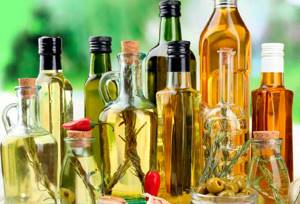
- Peanut - 2.3 g;
- Coconut - 1.1 g;
- Unrefined mustard - 8.3 g;
- Hemp - 5.4 g;
- Sesame - 3.5 g;
- Unrefined flaxseed - 11.4 g;
- Unrefined poppy seed – 8.7g;
- Almond - 4.7 g;
- Unrefined olive oil - 38.7 g;
- Palm unrefined - 16.7 g;
- Unrefined sunflower - 15.3 g;
- Refined sunflower - 3.9 g;
- Refined rapeseed - 6.7 g;
- Unrefined rapeseed - 10.5 g;
- Soy - 1.5 g;
- Cotton - 4.9 g;
- Stone fruit (mixture) - 3.6 g;
- Walnut oil - 4.6 g;
- Avocado oil - 3.9 g.
Nuts and oil seeds (per 50 g)
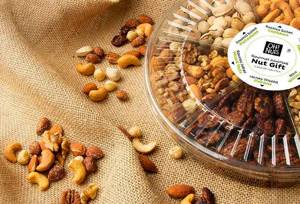
- Peanuts - 4.6 g;
- Walnuts - 1.4 g;
- Mustard seeds - 0.4 g;
- Sesame - 4.6 g;
- Flaxseeds 11.4 g;
- Olives - 36.6 g;
- Palm kernel - 5.7 g;
- Sunflower seeds (high oleic) - 25.8 g;
- Sunflower seeds - 3.6 g;
- Rapeseed seeds - 0.5 g;
- Soybeans - 1.3 g;
- Cotton seeds - 3.9 g;
- Pumpkin seeds - 5.1 g;
- Macadamia - 0.5 g;
Meat and egg:
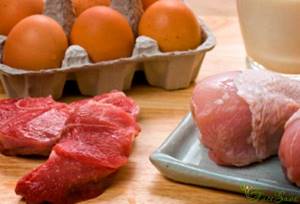
Unsaturated fats are also found in small amounts in some meats and eggs. This is poultry and pork. But compared to nuts and vegetable oils, the proportion of Omega-9 in them is negligible. Also, don't forget that meat also contains unhealthy saturated fats.
The percentage of monounsaturated fatty acids directly depends on the quality of the products. Farm products are richer in these beneficial elements.
Types of Healthy Monounsaturated Fats
The most common monounsaturated fats in the daily human diet are oleic acid and palmitoleic acid. []
Other types of monounsaturated acids:
- Undecylic acid
- Myristoleic acid
- Petrozelinic acid
- Elaidic acid
- Vaccine acid
- Gondoleic acid
- Gondoic acid
- Cetoleic acid
- Erucic acid
- Nervous acid [, ]
Oleic acid
Oleic acid , or omega-9 , is an essential fatty acid, which means that the body cannot synthesize it and must be present in the diet . It can help control your immune system and benefit your health. []
For example, olive oil is 70-80% oleic acid. Many studies have described its health benefits, such as lowering cholesterol, lowering blood pressure, reducing inflammation, and protecting against breast cancer. []
Oleic acid helps lower cholesterol levels
Oleic acid blocks the absorption of cholesterol in the small intestine . It reduces the expression of the cholesterol transport protein NPC1L1 by suppressing the unfolded protein response (UPR) pathway in CaCo-2 enterocytes. []
Oleic acid reduces the risk of breast cancer
Oleic acid stops the growth of cancer cells by []:
- suppression of over-expression of the HER2 gene (a known oncogene)
- using more calcium for intercellular communication
- inducing apoptosis of cancer cells.
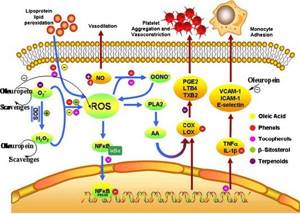
MECHANISM OF ACTION OF OLEIC ACID AT THE MOLECULAR LEVEL (source)
Oleic acid is involved in reducing inflammation
Oleic acid may reduce inflammation due to saturated fat in human cells. It reduces the production of ICAM-1 (cell adhesion molecule), which is part of the inflammatory response, and inhibits phospholipase A2, which is an inflammatory enzyme. []
Oleic acid helps lower blood pressure
Oleic acid reduces the stability of the cell membrane, which increases the activity of the adrenaline receptor (α2-adrenergic receptor), leading to a decrease in blood pressure .
[]
Functions of fats in the body
Fats are nutrients with many important functions in the body, the main ones being:
- energy - a source of energy for the body, which is twice as energetic as proteins and carbohydrates;
- structural
– material for building healthy cell membranes, in which fats affect the internal processes of the cell (the human brain is 60% fat).
Additional functions of fats:
- Participate in metabolic processes (form membranes, synthesize a number of hormones);
- Serve as shock absorbers, enveloping the main organs of the body;
- Take part in protecting the body from hypothermia and overheating;
- Responsible for the absorption of fat-soluble vitamins (A, D, E, K) and fat-soluble antioxidants (lycopene and beta-carotene);
- They supply the body with complexes of enzymes, minerals, and vitamins;
- They are a source of water after oxidation in the body.
Palmitoleic acid
Palmitoleic acid, also known as an omega-7 unsaturated fatty acid, is present in the blood and in the normal human diet. []
In the human body, palmitoleic acid is synthesized in the liver and adipose tissue. Food sources of this acid include macadamia oil (African nut oil) 19%, cod liver 7-12%, salmon 4-9%, olive oil 0.3-3.5%, chocolate, eggs, dairy fats and sea buckthorn oil 9- 31%. []
In addition, palmitoleic acid is contained in human milk about 3.5% by volume.
There are two forms of palmitoleic acid: cis and trans. The cis isoform is associated with decreased liver fat accumulation and increased insulin sensitivity . Trans isoforms are found in dairy products and partially hydrogenated oils, and are associated with a lower risk of heart disease and diabetes, and slightly lower body fat. [, ]
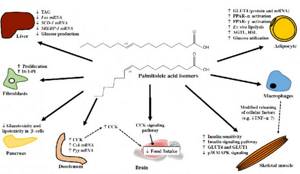
ACTION SCHEME OF PALMITOLEIC ACID AT THE MOLECULAR LEVEL (source)
Palmitoleic acid reduces cholesterol and inflammation, and reduces the risk of cancer
Palmitoleic acid supports healthy metabolism through:
- Activation of AMPK (5'AMP-activated protein kinase)[]
- Activation of PPAR-alpha (peroxisome proliferator-activated receptors), thereby promoting the burning of fat for energy production []
AMPK is an enzyme that activates energy pathways and suppresses those that are too energy-consuming. [] Its activation helps prevent cancer and diabetes . At the same time, it also reduces and triglyceride levels .
PPAR alpha is a protein that helps turn on genes (transcription factors) involved in fat burning during fasting or ketosis.[]
Harm
Excessive intake of triglycerides leads to:
- development of arthritis, multiple sclerosis;
- premature aging;
- hormonal imbalance in women;
- accumulation of toxins in the body;
- increased load on the liver and pancreas;
- formation of gallstones;
- inflammation of intestinal diverticula, constipation;
- gout;
- appendicitis;
- diseases of the coronary vessels of the heart;
- breast cancer, prostate cancer;
- irritation of the gastrointestinal tract, the appearance of gastritis.
Under the influence of heat treatment, healthy fats polymerize and oxidize, breaking down into dimers, monomers, and polymers. As a result, the vitamins and phosphatides in them are destroyed, which reduces the nutritional value of the product (oil).
Health Benefits of Monounsaturated Fats
Monounsaturated fats help reduce body weight
Diets high in monounsaturated fatty acids (MUFAs), such as the Mediterranean diet , may aid in weight loss . []
In obese women, a diet high in monounsaturated fat resulted in greater weight and fat loss than a diet high in polyunsaturated fat or their usual diet. []
However, in stage 2 overweight/obese diabetics, a high-monounsaturated fat diet was as effective as a low-fat, high-carbohydrate diet in terms of weight loss (4% of body weight), HDL levels, blood pressure, and improving blood sugar levels. []
Monounsaturated fats lower cholesterol and triglyceride levels
A diet high in monounsaturated fats can help lower cholesterol levels. Replacing saturated fats with unsaturated fats lowers LDL cholesterol , which is a major risk factor for cardiovascular disease.[]
Consuming oleic acid found in olive oil helps prevent the oxidation of LDL cholesterol and thus reduces the risks of atherosclerosis . [, ]
Palmitoleic acid may:
- triglyceride levels in people with abnormally high levels []
- increase HDL cholesterol []
- reduce LDL cholesterol []
Monounsaturated fats reduce the risk of cardiovascular disease
Diets high in monounsaturated fats are associated with a reduced risk of cardiovascular disease, heart attack and stroke. Oleic acid, olive oil and the Mediterranean diet help prevent and reduce death from heart disease. []
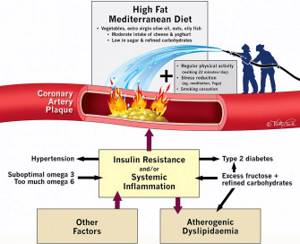
CORONARY HEART DISEASE (source)
Unsaturated fats are found along with saturated fatty acids in a variety of foods. Because saturated fat can impair heart health, it is important to eat foods that contain high levels of unsaturated fat and low levels of saturated fat. []
A Mediterranean diet high in unsaturated fatty acids may reduce the risk of death from a heart attack. [, ]
Diets high in oleic acid can also help lower blood pressure, cholesterol, glucose , and insulin , which protect against heart disease. []
Monounsaturated fats help treat diabetes
Diets high in monounsaturated fatty acids may be healthier food sources for patients with diabetes than low-fat, high-carbohydrate diets. A Mediterranean diet high in monounsaturated fat improves glucose control and insulin sensitivity .[]
Patients with overweight (obesity) and type 2 diabetes may be better able to control their disease with a diet high in monounsaturated fats than with a diet high in carbohydrates. []
In healthy people, replacing saturated fat with unsaturated fatty acids in the diet improved insulin sensitivity (clinical study) []
However, this beneficial effect on insulin sensitivity only occurs in conjunction with calorie reduction . In addition, a diet high in unsaturated fat had no effect on insulin production. []
In rats, fish oil supplements (high in unsaturated fat) helped lower blood sugar levels. It also improved insulin function and reduced inflammation levels, which reduces insulin resistance .[]
Getting olive oil is associated with a reduced risk of developing type 2 diabetes (meta-analysis of 29 clinical studies). [] However, several other substances in olive oil other than unsaturated fatty acids may also be responsible for these health effects.
Monounsaturated fats help the immune system and reduce inflammation
Oleic acid has various effects on the immune system and inflammation. Vegetable oils rich in monounsaturated fats show the same anti-inflammatory effects as fish oil. []
Like fish oil, olive oil helps:
- Increase nitric oxide (in rats) []
- Reduce the amount of arachidonic acid and the production of the inflammatory mediator prostaglandin E2 []
- Suppress inflammatory cytokines []
Eating almonds (contains polyunsaturated fats) helps:
- Reduce e-selectin (a marker of inflammation in blood vessels) []
- Reduce C-reactive protein (a marker of inflammation) []
- Reduce oxidative damage to cells, although this effect may also be due to other antioxidants in nuts []
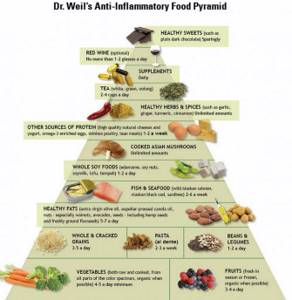
ANTI-INFLAMMATORY DIET PYRAMID
Monounsaturated fats help strengthen bones
Monounsaturated fats can help your bone health. High levels of monounsaturated fatty acids (MUFAs) in the diet have been associated with higher bone density and a lower risk of bone fractures .
A study of 187 women who ate a diet high in oleic acid found that the diet was associated with increased bone density. []
Higher amounts of monounsaturated fat compared to polyunsaturated fat in these women's diets also reduced the risk of bone fractures in older patients . []
Monounsaturated fats prevent the development of osteoporosis by reducing prostaglandin levels and reducing bone resorption (the breakdown and loss of bone tissue to release minerals into the blood). []
In experiments on mice, a diet high in monosaturated fat increased bone thickness and volume compared to a diet high in saturated fat and a normal fat diet. In addition, a diet high in saturated fat (the so-called “Western diet”) also increased intestinal calcium absorption, although it was unclear whether calcium absorption had any effect on bone mineral density.[]
Monounsaturated fats may improve mood and reduce the risk of depression
A diet high in monounsaturated fats can help improve your mood. The Mediterranean diet is associated with lower rates of depression .[]
In a study of 14 young people who consumed high amounts of oleic acid for 3 weeks, they were found to have less anger compared to those in a group consuming a high amount of palmitic acid in their diet.[]
Thus, replacing palmitic acid (a saturated fatty acid) with oleic acid (a monounsaturated fatty acid) reduces feelings of anger and hostility . However, it was unclear whether this was due to an increase in monounsaturated fatty acids or a decrease in saturated fatty acids. []
Foods rich in palmitic acid:
- Palm oil – 39-47% by weight of oil
- Pork fat – 27-30%
- Beef fat – 24-29%
- Milk fat – 20-36%
- Cedar oil – 10-16%
- Sea buckthorn oil – 11-12%
- Fish oil – 8-25%
- Olive oil – 6-20%
- Sunflower aslo – 6-9%
- Flaxseed oil – 4-11%
Monounsaturated fats reduce the risk of breast cancer
Consuming monounsaturated fats (MUFAs) instead of saturated fats may help reduce your risk of cancer. Diets containing oleic acid reduce the risk of breast cancer .[]
Breast cancer risk and polyunsaturated fat intake also depend on the source of fat in the diet. Olive oil in the diet is associated with a reduced risk of breast cancer . However, margarine, on the contrary, does not help reduce the risk of breast cancer. []
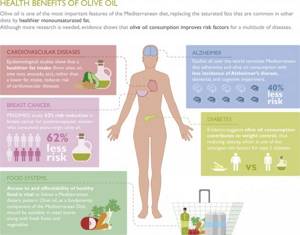
reducing the risk of breast cancer during postmenopause (source)
is possible, anti -tank effects of olive oil are caused by the content of antioxidants and polyphenols, for example, oleuropein, rather than oleic acid. But this requires further research. []
Monounsaturated fats reduce the severity of rheumatoid arthritis
A Mediterranean diet may help reduce symptoms of rheumatoid arthritis . [] Moreover, it has been observed that people with rheumatoid arthritis consume less monounsaturated fat in their diet compared to healthy people. A daily intake of monounsaturated fatty acids (MUFAs), such as olive oil, is recommended []
Additionally, consumption of olive oil and cooked vegetables has been associated with a reduced risk of developing rheumatoid arthritis .[]
Monounsaturated fats protect the liver
Monounsaturated fats may protect the liver from drug overdose damage.
In rats, a diet high in monounsaturated fatty acids (MUFAs) protected the liver from acetaminophen (paracetamol) damage. The presence of monounsaturated fats in the liver cell membrane reduces the cells' susceptibility to oxidative damage. []
Additionally, a diet rich in monounsaturated fats tends to reduce liver fat, which may protect against nonalcoholic fatty liver disease . []
Monounsaturated fats help increase “good” bacteria in the intestinal microflora
Changes in the content of gut bacteria can lead to obesity , and conversely, obesity can disrupt the composition of gut bacteria . []
Oleic acid can help with weight loss by restoring intestinal microflora. Oleic acid reduces a family of bacteria called Enterobacteriaceae, which are associated with inflammation. In addition, this acid increases the number of beneficial bacteria (bifidobacteria). []
Monounsaturated fats reduce sun damage to skin
Consuming plenty of olive oil, rich in monounsaturated fats, reduces the risk of severe skin damage from sun exposure .[]
However, no association was found between consumption of monounsaturated fats from dairy products and meat with increased sun protection. []
Warning
Most of these studies were of minor decision value. They were either small-scale or short-term studies in people based on self-administered dietary choices, or large-scale surveys of people. Additionally, some of these discovered health benefits of monounsaturated fats may be due to antioxidants or polyphenols in olive oil rather than the monounsaturated fatty acids (MUFAs) themselves.
Thus, according to the above studies, it cannot be said with 100% certainty that it is monounsaturated fats that are the true source of the identified health benefits. This fact once again indicates the need to choose real and high-quality olive oil , which contains large quantities of beneficial antioxidants and polyphenols .
Side Effects and Disadvantages of Monounsaturated Fats
general information
Monounsaturated fats themselves do not have a toxic effect on the human body. [] However, nuts, a good source of monounsaturated fatty acids (MUFAs), can cause allergic reactions. []
Excessive fat consumption always increases the calorie content of food, which can quietly lead to weight gain. Therefore, it is necessary to monitor the calorie content of your diet; you add fats to your food. []
It is worth keeping in mind that foods high in monounsaturated fats may also be high in other fats. This fact indicates the need to understand the composition of food products. []
Diseases
A diet high in fat (saturated and monounsaturated fat) is associated with an increased risk of developing gallstones .[]
Unlike oleic acid, unusual MUFAs may increase the risk of heart disease. For example, 7-hexadecenoic acid and cis-vaccine acid were associated with a higher risk of heart attack (sudden cardiac arrest) in a prospective study of 2,890 older adults. []
While consumption of these types of unusual monounsaturated fatty acids (MUFAs) may be associated with an increased risk of heart attack, the findings of this study were also associated with concurrent higher intakes of carbohydrates, protein, and alcohol. Therefore, it was not clear whether these fatty acids were a problem. []
Drug interactions
There are no known drug interactions today. However, a diet high in monounsaturated fat slightly increased intestinal glucose absorption in rats. []
The information on this site has not been evaluated by any medical organization. We do not seek to diagnose or treat any disease. The information on the site is provided for educational purposes only. You should consult your physician before acting on information from this site, especially if you are pregnant, nursing, taking medications, or have any medical condition.
Rate this article
Average 5 Total votes (3)
Daily intake

For an efficient and healthy metabolic process, energy must be replenished daily by consuming 55% carbohydrates, 15% protein and 30% fat. This is why a fat-free diet is not as healthy as many people believe.
By average, the daily fat intake is 100g. For women, a little less is recommended - 80g. Half of this can be obtained in the form of pure oil and sauces. And the rest is through other products: meat, dairy products, eggs.
You can completely satisfy the body's need for monounsaturated fats, for example, by eating a handful of nuts
